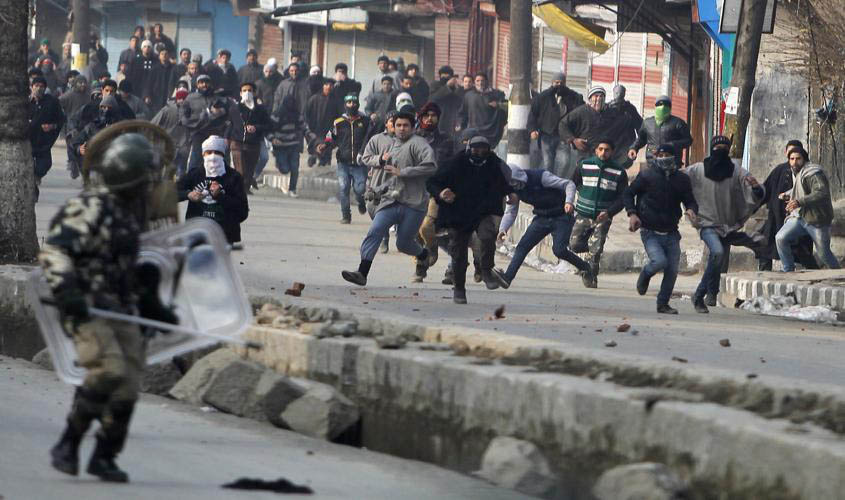The doomsday scenario vis-à-vis Kashmir being portrayed with alarming alacrity by a clutch of prominent personalities that include the historian Ramachandra Guha and the ex-Home Minister P. Chidambaram—in two newspaper articles—is a troubling example of intellectual non-leadership.
With articles ominously titled, “The darkness deepens…” and “Kashmir is sliding into disaster”, these worthies indulge in misleading homilies that advertently or inadvertently undermine the moral, legal and constitutional foundations of democratic India; naïve appraisals that succumb to the shenanigans of a stone-pelting, tantrum throwing segment of India’s population.
These writings can hardly qualify as mature, studied calls for reassessment of government policy; they are hackneyed clichés, with sensational attributes that are designed to discredit the current government’s hard line no-nonsense policy, rather than provide an effective alternative solution.
P. Chidambaram enumerates a set of urgent measures that he deems vital to salvage the situation—Governor’s Rule, dialogue with stakeholders, interlocutors and trimming the Army presence—positing them as new suggestions. In fact, all these measures have been tried out by successive governments belonging to both Congress and BJP, with negative consequences. Governor’s Rule was imposed five times since 1990, with two protracted terms lasting 6 years and 264 days and 178 days respectively; interlocutors have been appointed several times and countless attempts at dialogue have been made.
All that this soft approach has produced is a deceptive façade of intermittent periods of false tranquillity allowing radicalism to flourish unhindered and engendering in Kashmiris a hubris that holds India perpetually hostage with the threat of violence, even as it continues to partake of Indian largesse.
Ramachandra Guha’s contention that the Indian case in Kashmir is “made fragile in the present by the rising tide of jingoism, which insists that the government of India and the Indian Army have never made a mistake in Kashmir, indeed can never make a mistake in Kashmir,” is a flawed inference.
Terms like jingoism and hyper nationalism make for sensational reading, but suggest a vacuity of sound counter-logic. Not to stand by one of the most professional armies in the world is shameful. By and large, with the exception of a few isolated instances, Indian Army has functioned within the framework of human rights and the Indian Constitution. Even the incident of a protestor being tied to the front of a jeep falls into the realm of acceptability, when matched with the eventual outcome that saved scores of human lives.
To buttress my claim about the Indian Army, I reproduce a question that I posed more than 15 years ago (The New York Review of Books. 8 March, 2001) and is still valid today: “When the Pakistani army let loose a reign of terror in Bangladesh in 1971, nearly ten million Bangladeshis crossed over to India. The number of refugees is directly proportional to the degree of victimization. If the atrocities perpetrated by the Indian Army on the Kashmiri Muslims are so widespread and gruesome…then why are the Muslims not fleeing the valley? Why are not refugees pouring into Pakistan?”
To compromise with the separatist forces would be to accept violence as a modus operandi for change, condone ethnic cleansing and celebrate religious fundamentalism.
It is sheer foolhardiness to return to a toothless policy with a dismal record of over 25 years of failure. The current hard-line policy—which was in response to the unprovoked violence that erupted post Burhan Wani’s killing—has been, in effect, for barely less than a year. Temporary setbacks must not prompt any change.
Concomitantly, there would be no objection to India’s liberal civil society (represented by the likes of the authors) opening up channels of communication with the Kashmiris to convince themselves of the utility or futility of such an approach. If they are able to persuade Kashmiris to eschew violence, disown Pakistan and relocate the Kashmiri Pandits, the Indian government will certainly respond graciously. But till then the government must stay its present course.

